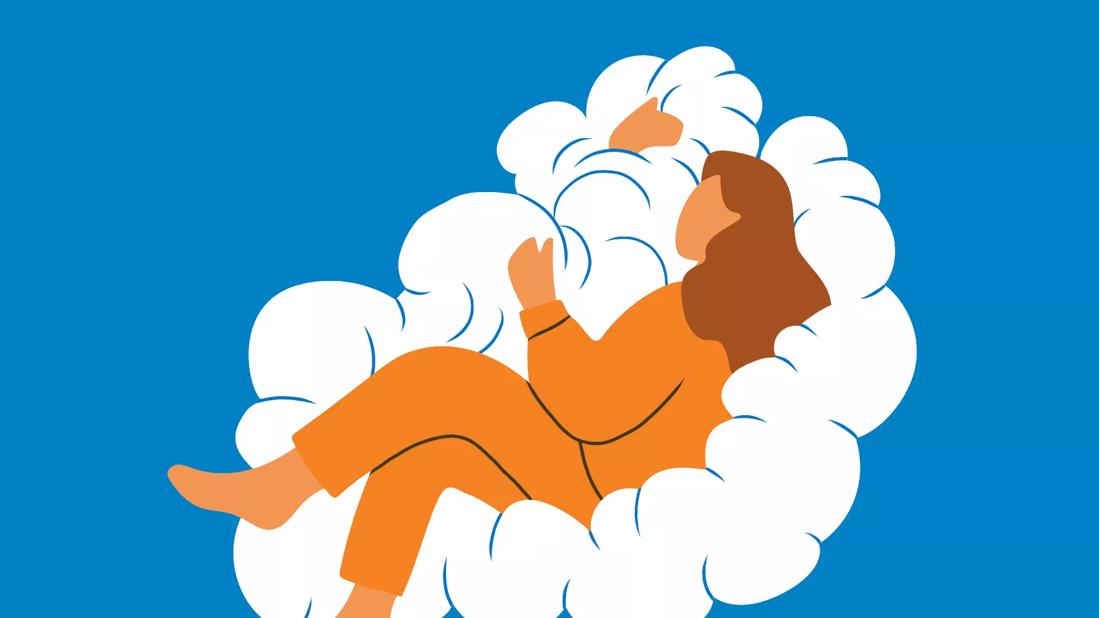Sleep-sex episodes are rare sleep-related disorders

Image content: This image is available to view online.
View image online (https://assets.clevelandclinic.org/transform/ebe0b68a-c3f7-42e9-b52c-1e5f4b7a8d6c/Sexsomnia-1338721946-770x533-1_jpg)
Person with the sleep disorder sexsomnia.
You’ve heard of talking in your sleep and walking in your sleep. But what about having sex in your sleep? Can that actually happen?
Advertisement
Cleveland Clinic is a non-profit academic medical center. Advertising on our site helps support our mission. We do not endorse non-Cleveland Clinic products or services. Policy
Sexsomnia is a type of sleep disorder known as a parasomnia. You may experience sensations and behaviors while asleep, falling asleep or even waking up with parasomnias. When it comes to sexsomnia, you may engage in masturbation or even engage in sex with others.
Sleep specialist and neurologist Marri Horvat, MD, MS, explains this rare sleep disorder and what to do if you think you have sexsomnia.
Also known as sleep sex, sexsomnia is when you engage in sexual activity when you’re asleep. And it’s quite likely you don’t know you’re doing it.
In rare cases, some people exhibit sexual behaviors during a deep sleep and have no memory of it, says Dr. Horvat.
“In sexsomnia, the sexual behavior can be outside your normal behavior or it can be your normal sexual behavior,” she explains. “But you’re unaware it’s occurring, and it’s unintentional.”
Like sleepwalking, sexsomnia is a parasomnia, a sleep-related disorder that occurs when you’re in between deep, dreamless sleep and wakefulness.
Behaviors during an episode may include fondling, masturbation, sexual intercourse, pelvic thrusting and spontaneous orgasm.
Although you’re asleep, it can appear to others that you’re awake. Someone experiencing an episode might have an open-eyed, vacant look, Dr. Horvat says.
Advertisement
And you may only find out you have the disorder from a partner, roommate or family member.
If someone around you witnesses this unusual behavior, ask them to write down what they observed. Even though it’s embarrassing, their observations can help your doctor diagnose and treat your condition.
Sexsomnia is extremely rare, appearing most frequently in those who have another sleep disorder like sleepwalking.
A study published in the American Academy of Sleep Medicine found that men are three times more likely than women to exhibit sexsomnia symptoms. Behaviors in men are likely more pronounced, perhaps more aggressive. Women are more likely to masturbate.
Other conditions that disrupt deep sleep can also lead to sexsomnia. Heartburn, restless leg syndrome and sleep apnea can all put someone in a sleep-wake state where these sleep-sex behaviors might appear.
Additionally, epilepsy, head injuries, migraines, Crohn’s disease and colitis are also associated with sexsomnia.
Although the reasons behind sexsomnia episodes aren’t clearly understood, many things can trigger them, Dr. Horvat says.
“The obvious triggers are anything that wakes you up,” she says. “Just like making noises, touching or turning on lights can cause someone to sleepwalk when they’re in a deep sleep, you can trigger sexsomnia.”
There’s evidence that drinking alcohol or using recreational drugs may lead to an episode for those who have the disorder.
In many cases, however, the triggers are factors that are more difficult to control, including:
It’s possible to manage the disorder by addressing underlying conditions that disrupt sleep, Dr. Horvat notes.
“For treatment, you must avoid any external stimulation that could trigger sexsomnia,” she says. “Both internal and external things that make you uncomfortable or half wake you up can trigger episodes, so you should avoid them.”
Other treatments may include:
But the real key, stresses Dr. Horvat, is to make sure you get enough sleep and maintain healthy sleep hygiene habits.
The first step in managing sexsomnia is to get a diagnosis, followed by the appropriate treatment. Speaking to a doctor about these episodes is important.
Advertisement
Because you’re not in control of your actions during episodes of sexsomnia, your condition may put others at risk.
Though you may feel shame about having sexsomnia, talking with your loved ones about it can help them understand and feel safe. Counseling, for you and those affected, may be an option.
While you figure out the best treatment, there are a few things you can do to keep you and others safe:
“It’s important to take precautions while you seek treatment to limit any triggers to these events, to help you and those you love sleep safely,” says Dr. Horvat.
Advertisement

Sign up for our Health Essentials emails for expert guidance on nutrition, fitness, sleep, skin care and more.
Learn more about our editorial process.
Advertisement
‘Safer sex’ means STI prevention, avoiding unintended pregnancies and psychologically safe practices for everyone
Keeping a sleep diary and seeing a sleep specialist can help you stay asleep and get the ZZZs you need
Sleep disorders, diet and mental health can affect the quality of your sleep
Manage your sexual health and urinary function with annual appointments starting at age 40
It’s normal to oversleep occasionally, but sometimes, there might be an underlying cause
This common phenomenon is usually harmless, but a consistent sleep-wake schedule can help
If it isn’t a hangover or teeth grinding, your aching head might be a sign of a sleep disorder
Your day-to-day life might hold clues
Type 2 diabetes isn’t inevitable with these dietary changes
Applying a hot or cold compress can help with pain
Pump up your iron intake with foods like tuna, tofu and turkey